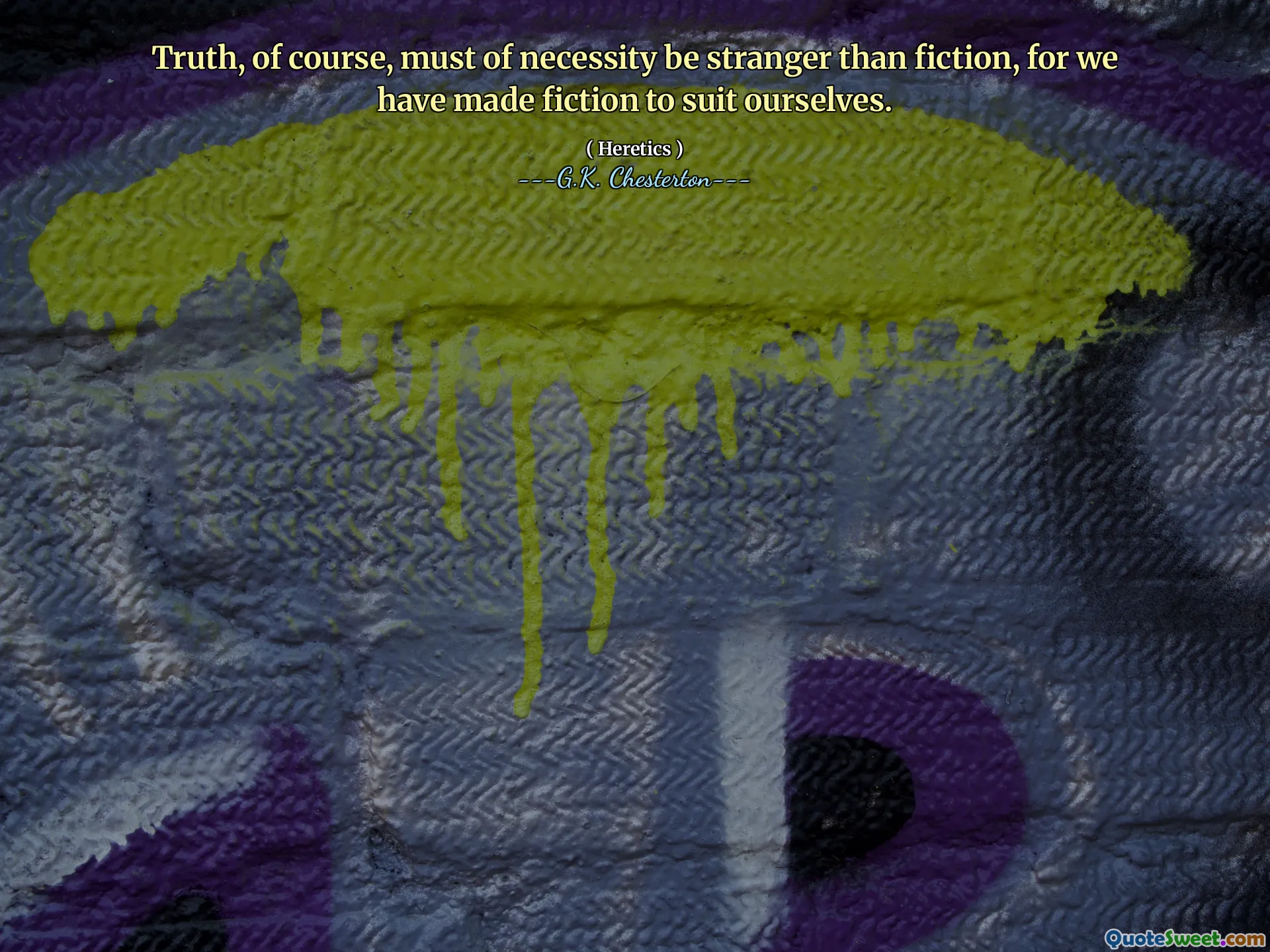
Truth, of course, must of necessity be stranger than fiction, for we have made fiction to suit ourselves.
G.K. Chesterton's observation highlights the uncanny and often astonishing nature of reality compared to our manufactured stories. In a world where fiction is crafted for entertainment, morality, or escapism, truth frequently surpasses the bounds of imagination because it is unbound by the constraints of narrative structure or reader expectations. Our efforts to shape stories to fit our tastes can sometimes mask the true complexity and unpredictability of life. Reality is a tapestry woven with events, motives, and consequences that often defy logic and neat resolutions, serving as a reminder of the limitations inherent in human perception and storytelling. For instance, real historical events or scientific discoveries have often been more astonishing than fictional tales, revealing the depth of the universe’s mysteries. This realization invites a humbling perspective: that our stories, while meaningful, are simplified reflections of a far-more intricate reality. Recognizing the profound strangeness of the truth encourages curiosity and humility. It underscores the importance of remaining open-minded, as the world continues to surprise us with its complexities. Embracing this unpredictability can inspire a deeper appreciation for the genuine wonder inherent in existence, urging us to look beyond fabricated narratives and seek understanding in the genuine, often more bewildering, realities we encounter.






